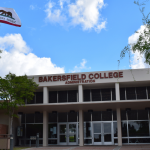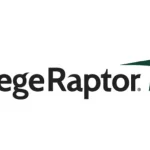Across the economy, it’s a challenging time to find great, talented and experienced people to fill open positions. In higher education, the problem of a depleted applicant pool is particularly acute.
Recent articles in both the Chronicle of Higher Education and the NASFAA News have brought attention to the issue.
“… the higher education sector – and financial aid specifically – is facing staffing shortages across the country due to increased turnover caused at least in part by burnout amid the pandemic, an aging workforce, and several other factors leaving schools struggling to compete for skilled workers in a highly competitive job market.”
–Owen Daugherty, “Financial Aid Offices Face Turnover and Staffing Shortages as ‘Great Resignation’ Hits Home”, NASFAA News, 1/7/22
Daugherty also added that job openings are near an all-time high, according to the US Bureau of Labor Statistics, indicating that the challenge is not just one for higher education.
Within financial aid, the problem is said to be severe, according to Daugherty, because it’s “been difficult to cultivate a pipeline of young workers eager to learn the ins-and-outs of financial aid and pursue a career in the field.”
When Institutional Knowledge is Lost
When colleges and universities lose long-standing, dedicated and knowledgeable staff to retirement or turnover – especially in areas like financial aid that require in-depth understanding of a comprehensive set of policies and procedures – they lose a significant part of their institution’s “brain.” It’s knowledge and experience that is hard to replace.
Conferences, workshops, trainings, email listserves and online forums are great ways for administrators to stay informed and develop. Yet, it can take years to master the subject, and it’s invaluable to have a historical perspective. State and federal policies and procedures evolve over time, and knowing how to adjust, based on past experience, can be of tremendous benefit to a school.
AI-Powered Chatbots and Knowledges Bases Shine Amid Turnover
At Ocelot, we are observing how AI-powered chatbots, and their associated knowledge bases, can be a source of current and consistent information about state and federal rules…particularly in regulated areas such as financial aid, international students, and Title IX. These sources of knowledge are maintained through a collaborative effort between Ocelot’s compliance team and administrators using the Ocelot platform.
The chatbot knowledge base provides a level of redundancy for an institution during steady-state staffing. When there is turnover, the chatbot is an ongoing source of information and knowledge for the college or university.
AI-Powered Chatbots and Knowledge Bases Can Train Staff
AI-powered chatbots are also a valuable resource for training new staff. When new hires are onboarding, they can be given a list of questions to ask the chatbot, in order to learn about topics important to their job. For each question asked, the AI-powered chatbot can also surface related questions that provide additional information and even more learning opportunities.
AI-Powered Chatbots and Knowledge Bases Make Life Better for Staff and the Institution
AI-powered chatbots and knowledge bases benefit both staff and the institution. Staff benefit from having a resource that is continually updated and provides students and fellow staff with current and consistent information. The institution benefits from knowing there are redundancies in place through the knowledge bases that reduce the reliance on any one staff member. We all love the staff person whose mind is a steel trap, can answer so many questions and knows so much of the history at the institution and department. But, we can quickly find ourselves feeling overwhelmed if that person retires or moves on. The AI-powered knowledge bases can create a feeling of empowerment for staff that comes with knowing that the information students need, and the institution’s policies and procedures, are accessible through a regularly maintained knowledge base that can continue supporting students as turnover occurs and new staff members join the team.
The Wrap
Colleges and universities that invest in AI chatbot technology get access to knowledge bases that can become important repositories of information. These repositories are updated regularly as institutional, state, and federal programs and policies change. When an office or department loses a key staff member to retirement or to another position within the institution, the chatbot’s knowledge base is a reliable source of current policies and procedures that can be relied upon. Knowledge bases are a blessing for the institution, which can minimize the “brain drain” when there is a transition. Even more importantly, the knowledge bases provide staff members who have contributed so much to the institution over time, and want to transition to another role or retirement, with the peace of mind that the institution has a robust institutional memory mechanism in place and will be able to forge ahead in continuing to support students on their educational journey in the years ahead.















